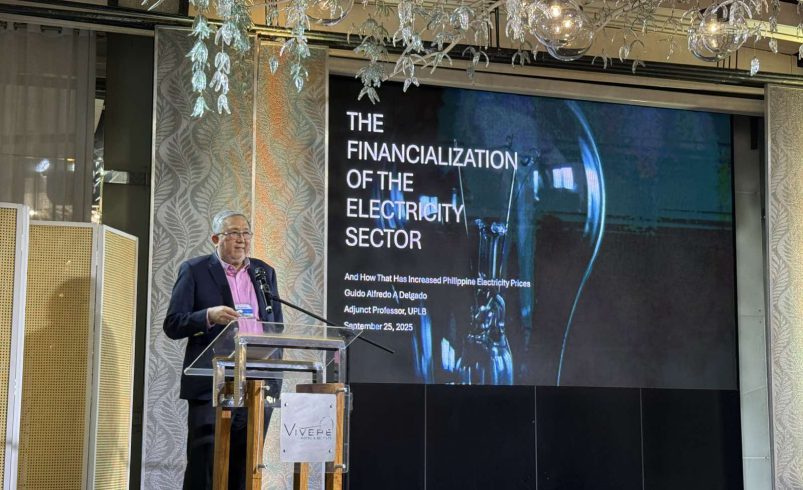Guido Delgado: De-financializing power rates could save Filipinos PHP350B yearly
- September 30, 2025
- 0

De-financializing the regulation of electricity rates could save Filipinos as much as PHP350 billion annually, according to Guido Alfredo A. Delgado, chairman of G.A.A. Delgado, Inc. (GAAD Inc.) and former president of National Power Corporation.
Speaking at the ENERCON 2025 Conference hosted by the University of the Philippines Los Baños (UPLB) and the Development Academy of the Philippines (DAP), Delgado said returning to cost-based accounting instead of relying on complex financial models would immediately ease the burden on consumers.
“For decades, regulators have relied on formulas like the Optimized Depreciated Replacement Cost (ODRC), Weighted Average Cost of Capital (WACC), and the Capital Asset Pricing Model (CAPM),” Delgado said. “If we de-financialize this regulatory framework and return to actual cost-based accounting, I estimate the Philippines could save as much as PHP350 billion annually.”
He explained that these financial models have detached pricing from reality. The Supreme Court’s decision in G.R. No. 226443, which declared ODRC illegal, stressed this by ruling that the method shifted infrastructure costs onto consumers instead of ensuring least-cost power. Meanwhile, CAPM and WACC, used by the Energy Regulatory Commission (ERC) to calculate equity returns, have been criticized as arbitrary and ill-suited for the Philippine market. Together, these approaches have inflated utilities’ asset bases and guaranteed returns that consumers end up paying for.
“The result is that Filipinos have been paying more for infrastructure than it actually costs to build — plus interest,” Delgado stressed.
He urged regulators, policymakers, and academics to overhaul the current system and focus on transparency and fairness. “What we need is not more mathematical sleight of hand, but clarity and accountability,” he said, emphasizing that electricity must be treated as a basic necessity, not as a speculative asset class.
Delgado added that UPLB is preparing to intr
“The call is urgent: de-financialize electricity regulation, bring rates back to reality, and give Filipino consumers the fair deal they deserve,” he said.
Would shifting to cost-based regulation finally deliver lower power rates for Filipino households and industries?
Follow Power Philippines on Facebook and LinkedIn or join our Viber community for more updates.